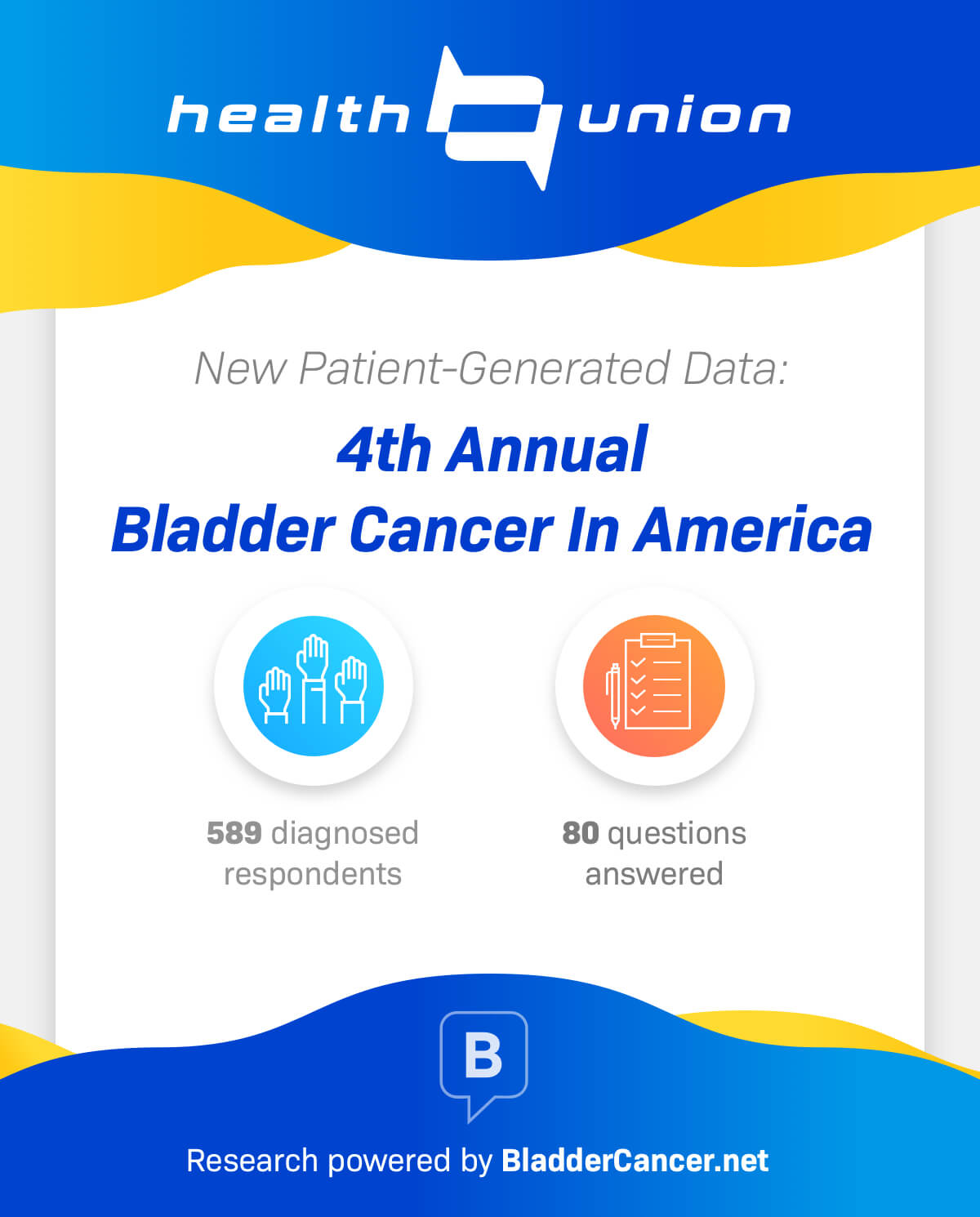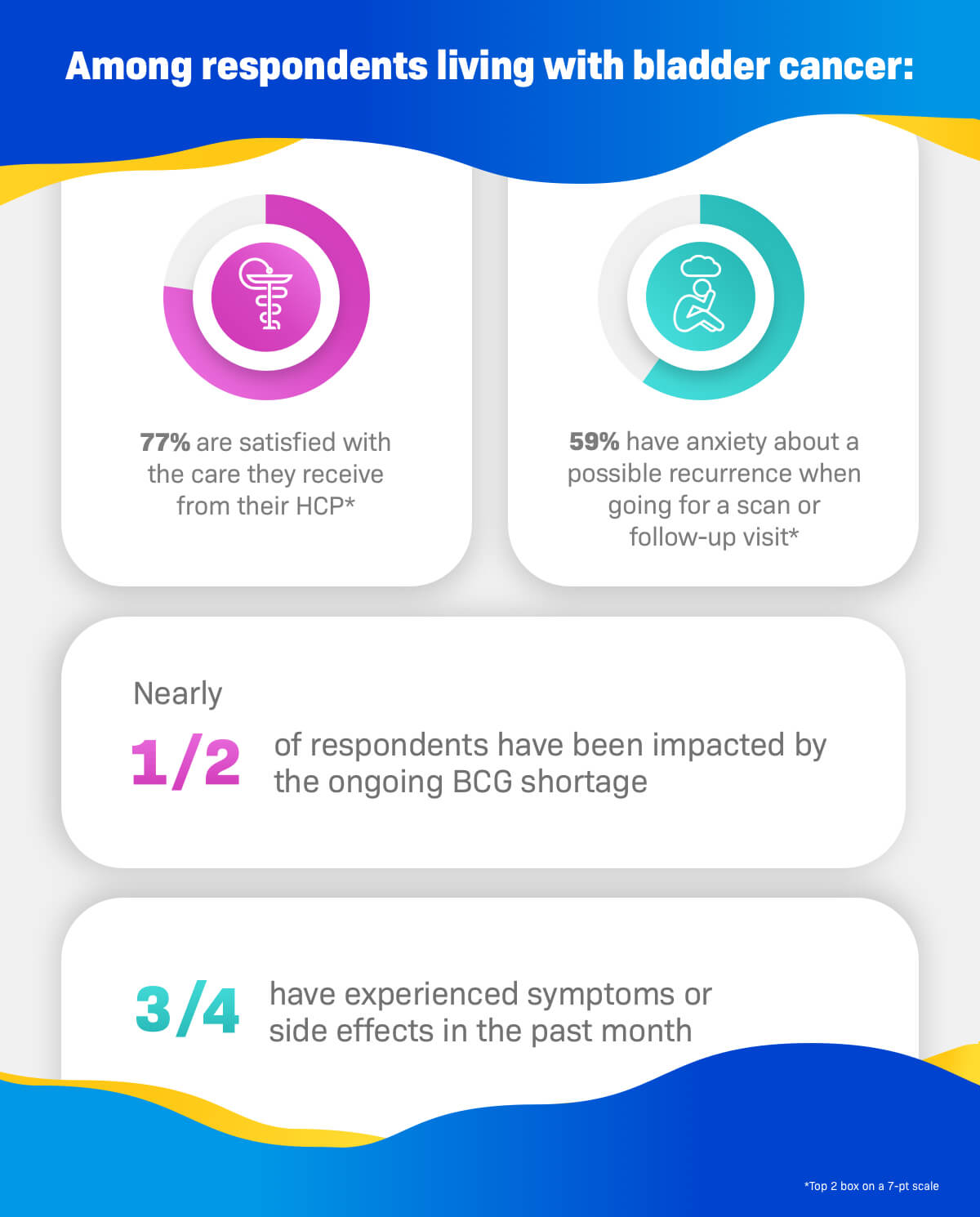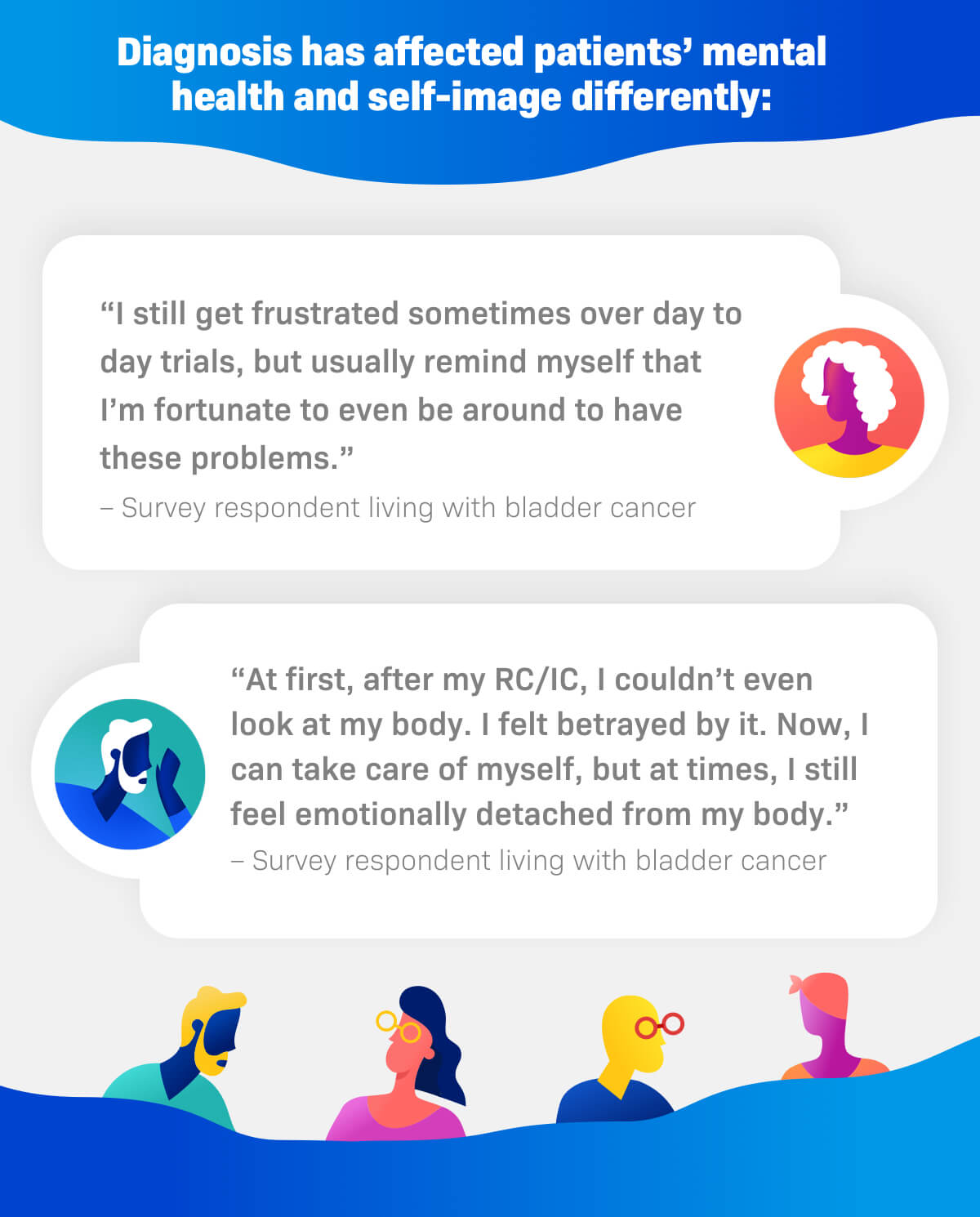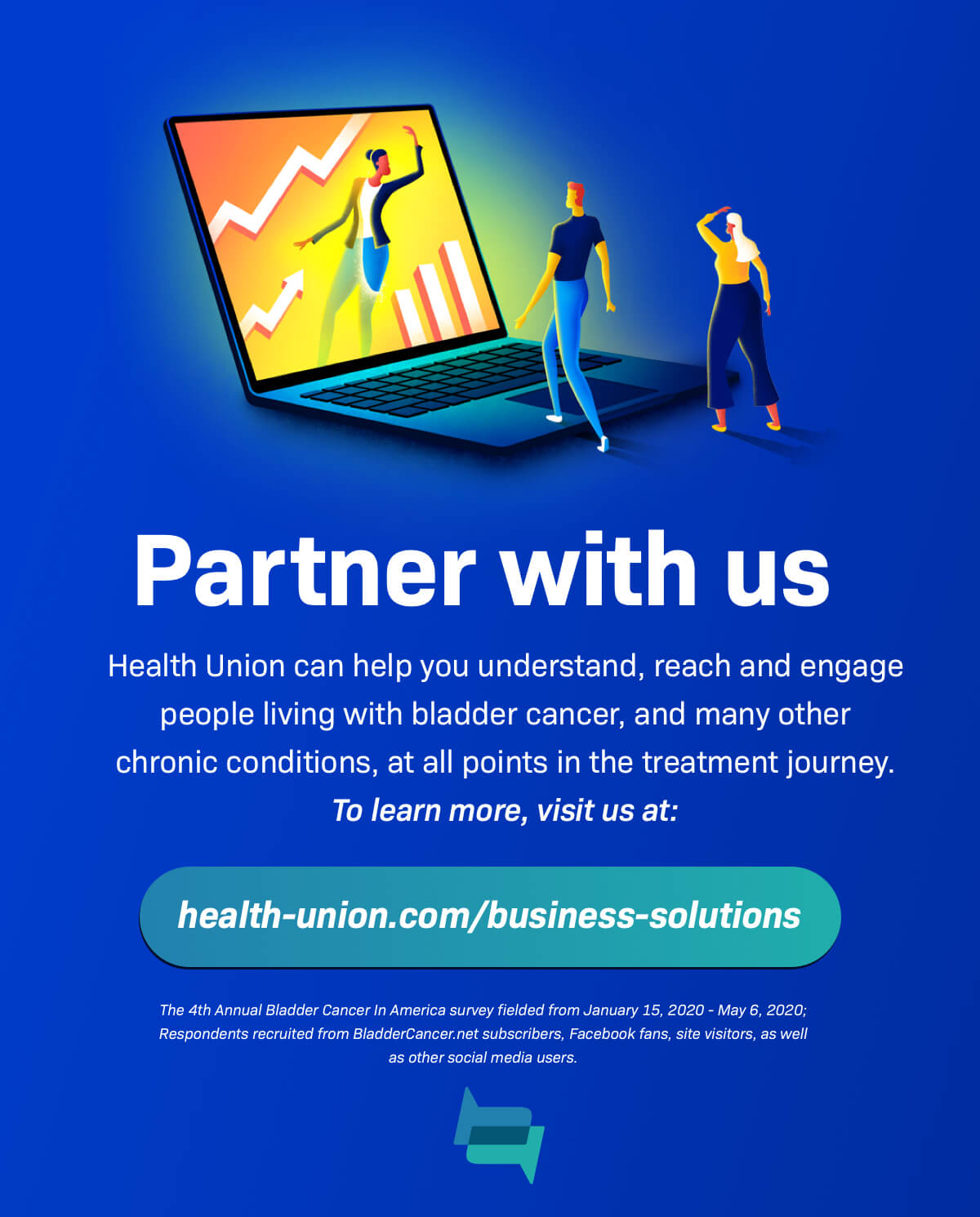Bladder Cancer In America
New Health Union survey data helps the healthcare industry better understand and reach people living with bladder cancer
For the fourth year in a row, Health Union has gathered patient-reported data from hundreds of real people impacted by bladder cancer. The fourth annual Bladder Cancer In America survey, a syndicated research study from Health Union, quantifies the true impact of this condition among patients – going beyond basic demographics and symptoms to establish a deep understanding of the holistic patient journey for those affected and to track trends over time.
The new data from the fourth annual Bladder Cancer In America survey reveals deep insights of a population of 589 diagnosed respondents, of which 77% feel satisfied with the care they receive from their healthcare professional* and 59% have anxiety about a possible recurrence when going for a scan or follow-up visit.* Nearly half of respondents have been impacted by the recent and ongoing BCG shortage, and 3/4 have experienced symptoms or side effects in the past month.
A bladder cancer diagnosis affects people’s mental health and self image differently. Survey respondents wrote:
“I still get frustrated sometimes over day to day trials, but usually remind myself that I’m fortunate enough to even be around to have these problems.” – Survey respondent living with bladder cancer
“At first, after my RC/IC, I couldn’t even look at my body. I felt betrayed by it. Now, I can take care of myself, but at times, I still feel emotionally detached from by body.” – Survey respondent living with bladder cancer
This access to a broad base of knowledge, facts and data gleaned from Health Union’s open online health communities like BladderCancer.net, and syndicated research allows the healthcare industry to harness the power of Health Union’s continuous immersion in the patient experience to deliver smarter insights and implications–so you can spend your time developing the strategies that will make a difference.






